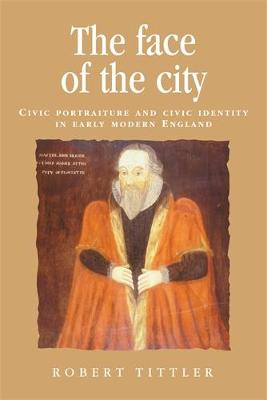Politics, Culture and Society in Early Modern Britain
1 total work
Our conventional understanding of English portraiture from the age of Holbein and Henry VIII on to Reubens, VanDyck and Charles I clings to the mainstream images of royalty and aristocracy and to the succession of known practitioners of 'Renaissance' portraiture. Projection of the royal or aristocratic persona, the self-fashioning of the individual, remained the main objective of these works, and the steady development towards more sophisticated stylistic conventions, as imported by prominent foreign-trained artists, remains the traditional art historical context in which they have been considered.
In almost every respect, the 'civic' portraits examined here stand in sharp contrast to these traditional narratives. Depicting mayors and aldermen, livery company masters, school and college heads, they were meant to be read as statements about the civic leaders and civic institutions rather than about the sitters in their own right. Displayed in civic premises rather than country homes, exemplifying civic rather than personal virtues, and usually commissioned by institutions rather than their sitters, they have yet to be considered as a type of their own, or in their appropriate social and political context.
Tittler presents them here as statements about civic identity, as integral components of the political culture of civic institutions in post-Reformation England. Along the way, he offers pioneering examinations of the 'folk' or vernacular styles in which they were often done, of the anonymous, native-English artisan-painters who usually did them and of the local and regional basis of this type of portrait painting.
A remarkable study that will be welcome by early modern historians and art historians.
In almost every respect, the 'civic' portraits examined here stand in sharp contrast to these traditional narratives. Depicting mayors and aldermen, livery company masters, school and college heads, they were meant to be read as statements about the civic leaders and civic institutions rather than about the sitters in their own right. Displayed in civic premises rather than country homes, exemplifying civic rather than personal virtues, and usually commissioned by institutions rather than their sitters, they have yet to be considered as a type of their own, or in their appropriate social and political context.
Tittler presents them here as statements about civic identity, as integral components of the political culture of civic institutions in post-Reformation England. Along the way, he offers pioneering examinations of the 'folk' or vernacular styles in which they were often done, of the anonymous, native-English artisan-painters who usually did them and of the local and regional basis of this type of portrait painting.
A remarkable study that will be welcome by early modern historians and art historians.
